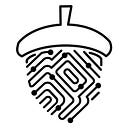Teens in AI Accelerator 2019 Day 1
The day kicked off with Elena’s welcoming speech, where she shared her unexpected journey from studying International Relations & Politics and working in international development in Central Asia, the Balkans, Africa and Bangladesh to creating AI and tech hackathons for teens all over the world. She expressed her true passion for the TeensinAI mission which really inspired everyone in the room.
She then introduced our first speaker, Julien Cornebise, who is the director of research at Element AI and former researcher at Google Deepmind. He shared with us his passion in creating AI for good. One of his collaboration projects with Amnesty International is the Troll Patrol which uses an AI to determine if tweets are abusive towards women (they researched specifically journalists and politicians), with the help of volunteers called ‘decoders’ to train the AI. They found that 7.1% of the tweets sent to the women were abusive. This amounts to 1.1 million tweets mentioning these women across the year (one every 30 seconds!). From his talk, we learnt that, as the future generation, it is our responsibility to respect human rights in all the tech we create.
Following from Julien, we had an ethics session with Alejandro Saucedo, the chairman of the Institute of Ethical AI and Machine Learning and advisor of Teens In AI, who spoke to us about: machine learning, deep networks, the potential of AI, ‘where is the limit?’, and showed us some frameworks of ethics.
After the talks, we did an icebreaker to get to know the other teens in the cohort. One of the activities was to draw what we think AI looks like. Several teens drew brains and computers, others drew robots and helping hands.
Continuing the morning, we had Moe Hashimi who gave a very entertaining yet powerful talk about attitude towards difficult tasks.
He first asked the teens why they wanted to join the accelerator. Many replied: “More skills and knowledge!” and “Create and code something tangible! “ and the like. After he asks “What stops you from achieving these things on your own?”. More answers erupted from the room: “Knowledge! School! Government! Parents! Haters!”. Lastly he asks us what things from the list we can control the outcome of. This inspired me, as well as the other teens, to have a can-do attitude, especially during this Accelerator.
After the talk we were given three of the UN challenges which we could help solve using AI. These were:
1 — Health and Wellbeing
2 — Climate Action
3 — Quality Education
Focusing one of each of the challenges, the groups of teens discussed the specific problems involved, current solutions and possible future solutions.
After discussing these challenges with the whole cohort, each team then decided which challenge they wanted to tackle using AI.
During the last hour of our very first Accelerator day, we had 2 more speakers. Dr. Chris Bakal, a cancer researcher from the Institute of Cancer Research, talked about how he uses AI in the lab to study cancer cell shapes.
Lastly, to end the day, we had Freddie Kalaitzis who works with Element AI and Amnesty International. He along with Julien, created Troll Patrol. He talks more about his experience using AI for human rights.
